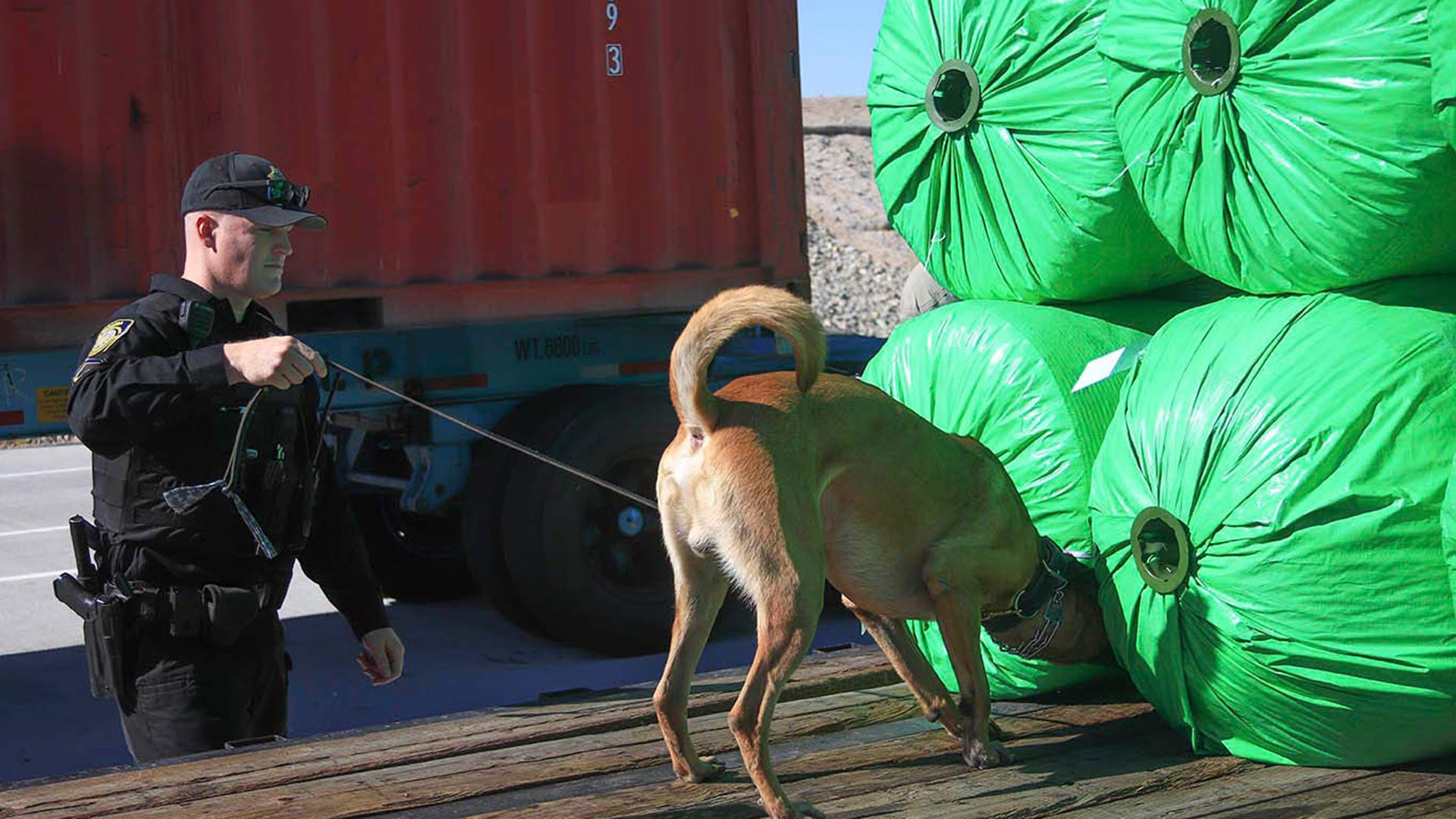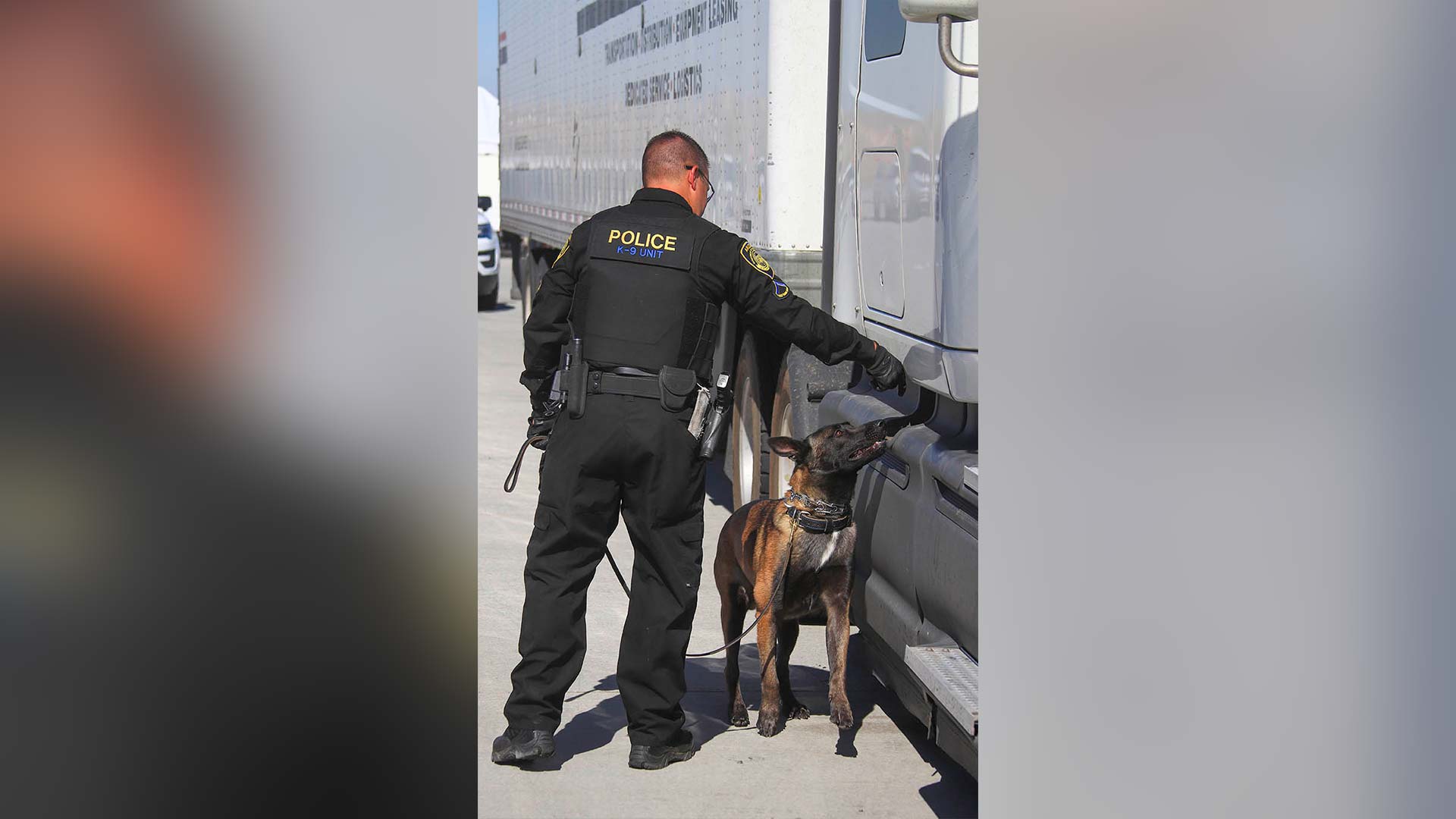 The Arizona Department of Transportation is using K-9 units at the interstate ports of entry to combat illegal activity.
The Arizona Department of Transportation is using K-9 units at the interstate ports of entry to combat illegal activity.The Arizona Department of Transportation has been testing a pilot program since December that uses two K-9s at the interstate ports of entries on the east and west sides of the state, assisting officers with drug trafficking and human smuggling.
The state's transportation department is paying nearly $30,000 for both drug-sniffing dogs, according to Ryan Harding, a spokesperson for ADOT. He says it costs almost $15,000 to train each dog.
Previously, law enforcement would rely on surrounding agencies when they felt the need for a K-9 unit, Harding said.
"Those units aren't always readily available, so having our own helps us to have those types of means at our disposable more readily," he said, "making us more effective in screening those trucks and combating any kind of criminal activity."
In the last seven months, the dogs have aided the discovery of 350 pounds of marijuana and tens of thousands of dollars in illicit bulk currency, according to Harding. The units are part of ADOT's Enforcement and Compliance Division.
 The Arizona Department of Transportation is using K-9 units at the interstate ports of entry to combat illegal activity. Courtesy: Arizona Department of Transportation.
The Arizona Department of Transportation is using K-9 units at the interstate ports of entry to combat illegal activity. Courtesy: Arizona Department of Transportation."We have two units no. We would certainly like to double that in the next year if this pilot program all goes well," Harding said. "So far it's gone very well."
The Belgian Malinois K-9s are trained to detect marijuana, methamphetamine, cocaine and heroin. The cost to train each dog also includes officers' training and handling.
Follow Brandon Mejia on Twitter or contact him via email at BMejia@azpm.org.

By submitting your comments, you hereby give AZPM the right to post your comments and potentially use them in any other form of media operated by this institution.